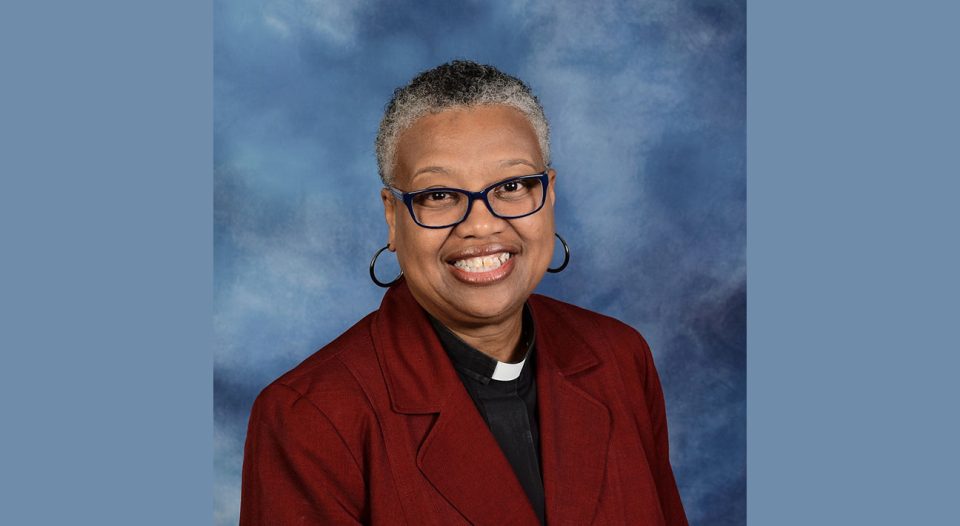Three Advents ago, in a sermon on the incarnation, Phyllis Blair Milton noted how children’s images of God develop as their thinking grows more sophisticated. “When … children are asked, they will draw you a picture, usually of an old man with long hair and a beard,” she said. “But as children grow into adults, their pictures of God often evolve into abstract images of clouds and sunbursts as they attempt to integrate the properties of a reality they cannot see.”
As Milton prepares to become bishop of the Virginia Synod, she brings with her that long view of human faith, developed over many years as an educator, coach and pastor. In the mid-90s she earned a master’s degree in Christian education at Bethel Seminary in St. Paul, Minn., before going on to get her doctorate in ministry there. She came to the Virginia Synod in 2012 as minister of Christian formation, and from 2014 to 2021, while serving as pastor of Gloria Dei Lutheran Church in Hampton, Va., she doubled as chaplain of its school, an experience she counts among her fondest.
“The bright spot of my time there was … the mornings I would have chapel with them,” Milton recalled. “It just made my week.”
The idea of connecting the generations excites her. Asked what she most looked forward to in her new position, she mentioned visiting congregations around the state and explicitly connected this to her work with Roots & Wings, a synod ministry that helps parents and grandparents share their faith with their young children and grandchildren.
“In that position, I was able to travel around the state to meet with congregations and help them in their Christian education ministry,” Milton explained. “So I look forward to meeting people, to seeing what they discern as the needs of our synod [and] where we can become stronger and where we can reach out more and where we can be about what God wants us to be doing in the Virginia Synod.”
During her earlier service to the synod, she also served on the candidacy committee, which has given her insight into the difference between candidates young and old. The younger ones she prizes for their “sense of wonder and excitement. … It’s a really amazing thing to sit and listen to their stories of their discernment, and what they feel God is calling them to, and their excitement and readiness for that opportunity.” By contrast, she observed, older candidates bring with them “a wealth of insight and knowledge and wisdom, just about life in general, that will be an asset to them in ministry.”
Milton thinks that, even in this age of diminishing faith, the church can reach young people. “I think we have to get used to the idea that a lot of our ministry will take place outside of those four walls, and so we have to be ready to adapt and to respond to what [young people’s] needs might be,” she said. “It may be listening in on a podcast, it may be some other virtual means of having that resource with them wherever they may be. I think we just need to be ready to see what we can do to provide ministry and mission to those that particularly don’t see themselves coming inside our four walls on a Sunday morning.”
The new bishop takes office on Sept. 1, and an installation service will follow on Oct. 21 at First Presbyterian Church in Waynesboro, Va.





